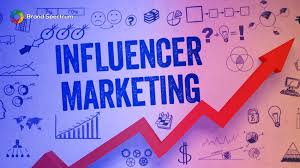In the last few decades, digital marketing has influencer marketing agencies transformed from a niche practice into the cornerstone of modern business strategy. With the exponential rise of the internet, social media, and mobile technologies, the digital realm has revolutionized how businesses interact with consumers, turning digital marketing into an essential tool for growth and success.
What is Digital Marketing?
At its core, digital marketing refers to any marketing activity that takes place online or through digital devices. This encompasses a wide array of tactics, including search engine optimization (SEO), social media marketing, email campaigns, content marketing, and digital advertising. Unlike traditional marketing, digital marketing offers real-time tracking and measurable results, making it a more dynamic and adaptable approach to reaching and engaging consumers.
The Evolution of Digital Marketing
Digital marketing began with basic email campaigns in the early days of the internet. However, the industry has since evolved dramatically. In the early 2000s, search engines like Google and Yahoo began to shape the digital marketing landscape, paving the way for search engine optimization (SEO) and pay-per-click (PPC) advertising.
By the mid-2010s, the rise of social media platforms like Facebook, Twitter, and Instagram fundamentally altered how businesses engaged with consumers. With millions of active users, these platforms provided a goldmine of data that companies could leverage to target audiences with personalized, highly specific content. Video marketing, influencer marketing, and interactive content further enriched the digital marketing toolkit.
In recent years, artificial intelligence (AI), machine learning, and data analytics have taken digital marketing to the next level. Marketers now harness AI to predict customer behavior, personalize experiences, and automate tasks, while big data helps businesses make data-driven decisions to optimize their marketing efforts.
Key Components of Digital Marketing
- Search Engine Optimization (SEO)
SEO is one of the foundational pillars of digital marketing. It involves optimizing website content to rank higher on search engine results pages (SERPs) for relevant keywords. By enhancing the visibility of a website, businesses can increase organic traffic, build trust, and attract more potential customers. SEO includes both on-page factors (like keyword usage and content quality) and off-page factors (such as backlinks and social signals). - Social Media Marketing
Social media marketing utilizes platforms like Facebook, Instagram, Twitter, LinkedIn, and TikTok to promote products, engage with audiences, and build brand awareness. With billions of users globally, social media offers unparalleled reach. Paid social media ads, influencer collaborations, and organic posts allow businesses to target specific demographics and create direct conversations with their customers. - Content Marketing
Content is king in the world of digital marketing. Content marketing focuses on creating valuable, informative, and engaging content to attract and retain a target audience. Blog posts, videos, podcasts, infographics, and ebooks are just a few of the content types businesses use to provide solutions, entertain, and educate potential customers, thereby driving traffic and conversions. - Email Marketing
Email marketing remains one of the most effective digital marketing strategies. It involves sending targeted messages to a segmented list of email subscribers. Whether it’s newsletters, promotional offers, or personalized recommendations, email marketing nurtures relationships with potential and existing customers. Automation tools and AI-powered personalization make email campaigns even more impactful by delivering the right message at the right time. - Paid Advertising (PPC)
Pay-per-click advertising, or PPC, involves placing ads on search engines or social media platforms and paying only when the ad is clicked. Google Ads and Facebook Ads are two of the most popular PPC platforms, offering highly targeted advertising options. Marketers use PPC to quickly generate traffic, promote products or services, and generate leads, all while tracking ROI in real-time. - Affiliate Marketing
Affiliate marketing is a performance-based strategy in which businesses partner with influencers or other websites to promote their products or services in exchange for a commission on sales or leads generated. This model works well because affiliates typically have an established audience that trusts their recommendations. - Influencer Marketing
As social media continues to grow, influencer marketing has become a go-to strategy. Brands partner with individuals who have a significant following in their niche to promote products authentically. Influencers can drive brand awareness, increase trust, and engage audiences in ways traditional advertisements cannot.
The Advantages of Digital Marketing
- Targeted Reach
One of the greatest benefits of digital marketing is its ability to reach specific audiences. Through data analytics and sophisticated algorithms, businesses can create highly targeted campaigns based on factors such as demographics, location, interests, and behavior. This leads to more relevant interactions, higher engagement, and greater conversion rates. - Cost-Effectiveness
Compared to traditional marketing, digital marketing is often more affordable. Businesses can run campaigns with minimal budgets, yet achieve vast reach, particularly through social media, content marketing, and SEO. Additionally, with tools to measure and track the effectiveness of campaigns, companies can allocate their budgets more efficiently, ensuring better returns on investment. - Real-Time Results and Analytics
Digital marketing allows businesses to track performance in real-time. Whether it’s monitoring the success of an email campaign, tracking social media engagement, or measuring website traffic, businesses can adjust their strategies instantly based on performance data. This leads to improved optimization and more informed decisions. - Increased Engagement
Digital marketing fosters deeper interactions between businesses and customers. Social media and interactive content give customers the chance to voice their opinions, share feedback, and engage directly with brands. This fosters brand loyalty and builds a stronger connection with the audience.
Challenges in Digital Marketing
Despite its many advantages, digital marketing does come with its challenges. The rapidly changing nature of digital platforms requires marketers to stay up to date with new tools, trends, and algorithms. The crowded nature of online spaces also means that businesses must constantly innovate to stand out from the competition. Privacy concerns and data protection regulations like GDPR also require marketers to handle customer data responsibly.
The Future of Digital Marketing
The future of digital marketing lies in personalization and automation. AI-driven tools will continue to shape customer experiences, with businesses offering tailored content and recommendations based on individual preferences and behaviors. Chatbots and voice search optimization will become even more common as consumers demand faster, more intuitive interactions with brands.
In the coming years, augmented reality (AR) and virtual reality (VR) will also play a larger role, allowing customers to engage with products in entirely new ways. As the digital landscape evolves, businesses will need to stay flexible, embracing emerging technologies to remain competitive.
Conclusion
Digital marketing has proven itself to be a game-changer for businesses in every industry. Its ability to reach and engage audiences, coupled with its cost-effectiveness and real-time analytics, has made it an indispensable component of modern marketing strategies. As technology continues to evolve, the future of digital marketing will no doubt bring even more exciting opportunities for businesses to grow, innovate, and connect with consumers. The key to success lies in staying ahead of the curve, adapting to new tools and trends, and always focusing on providing value to the customer.





